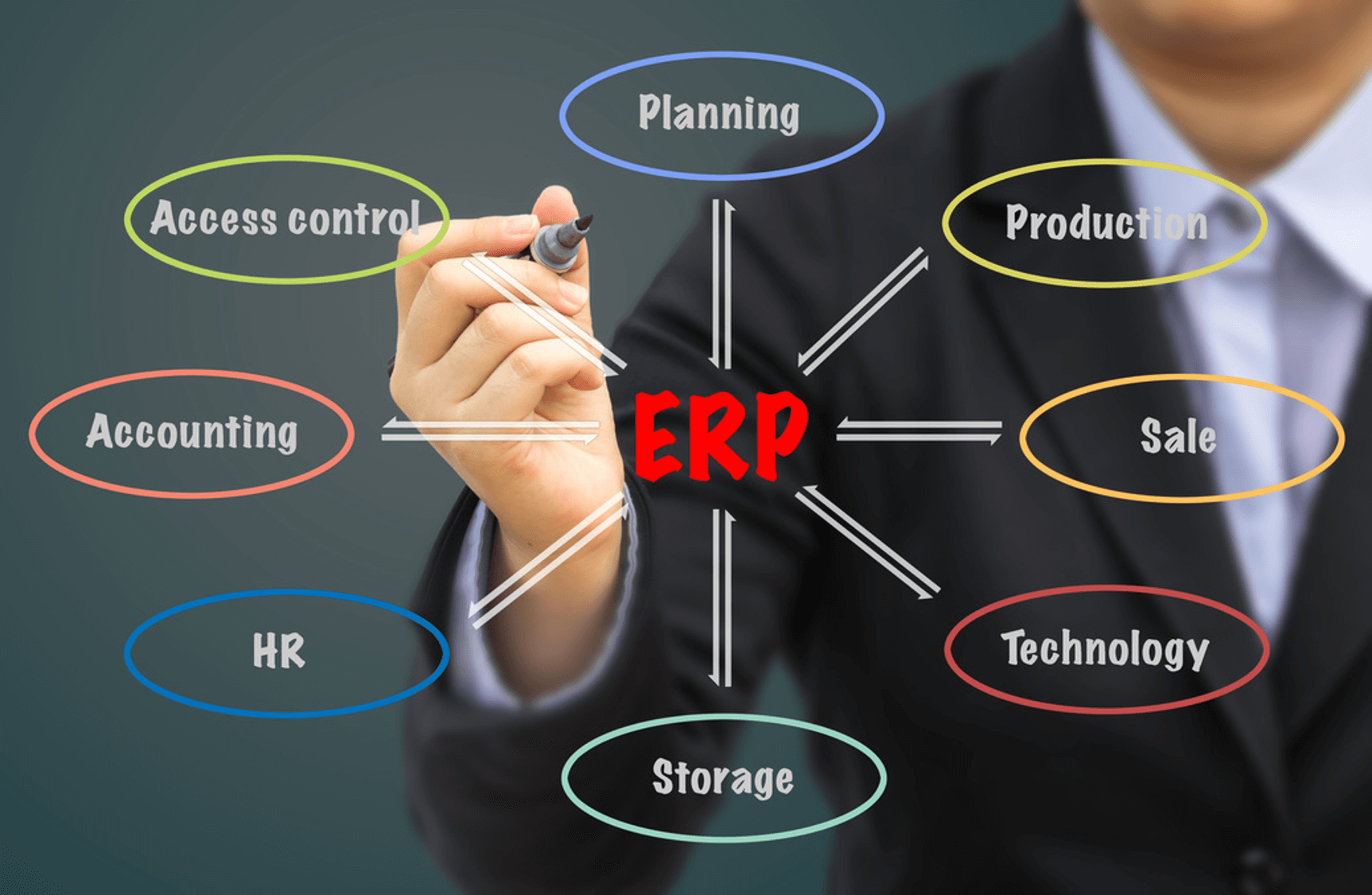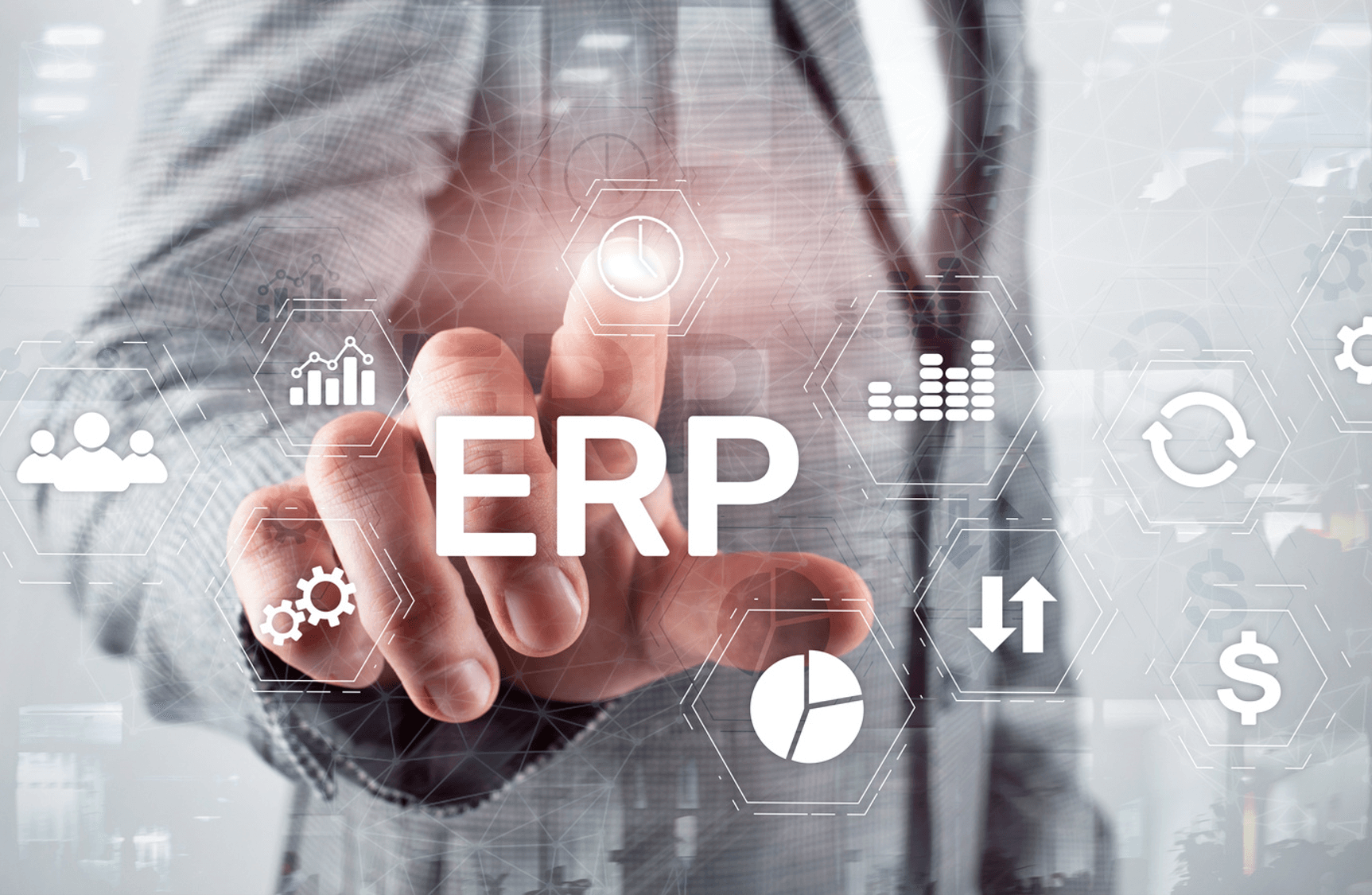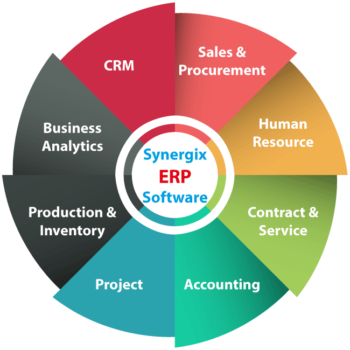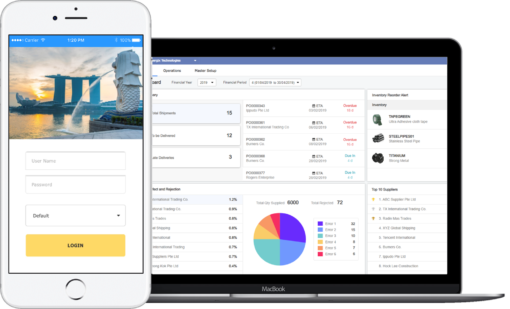ERP Implementation: A Comprehensive
Guide
The proper implementation of ERP system in
your company could become a complicated
task. It needs to be carefully planned and
executed so as to fit the specific
requirements of the company. Hence,
we’ll explain some vital facts that
you should consider to help you come up with
an ERP deployment strategy.
Understanding the ERP Implementation
Process
As the success
of an ERP
implementation project is built on a
grounded understanding of the process, it is
crucially important to start with an
in-depth understanding of it. It concerns
setting goals, analysing the situation of
operations at the moment, and organising ERP
features so that they comply with
organisational needs. This point implies the
need to do an in-depth evaluation of
workflows and processes, through which you
will be able to see where improvement is
needed.
Key Stakeholders in ERP
Implementation
- Thorough project planning and
management will make it
possible for us to set up short and
long-term goals to achieve vision.
Appoint the individuals who will oversee
the implementation process and check
that tasks are accomplished within time
and money limits.
- The process of data migration
and conversion from the old
system to the new ERP stands as a
significant step. To ensure the accuracy
of data, we need data cleansing,
mapping, and validation approaches as we
go through the process.
- The well-being of a training
program should be the
priority which is aimed at accomplishing
the skill set required to use the ERP
system at its maximum potential.
Adoption of users is the most important
KPI.
- Extensive systems testing and
quality assurance
techniques with a focus on
identifying any potential complications
and discrepancies before going live will
aid in making the system more effective.
Strategic testing will lead to a less
rough transition.
- A continuous support and
maintenance are required to
maintain the system in its proper and
maximum performance. The system
continues to be updated, various
troubleshooting tasks are done, and
continuous improvement remains an
integral part of its effectiveness when
faced with changing business demands.

ERP Software Integration: Connecting
Systems for Seamless Operations
Your ERP system
is your financial control center, but to
unleash its full potential, it needs to work
with other apps. Isolation leads to manual
data entry, delays, errors, and reduced
productivity. Therefore, integration with
ERP software used by different teams is the
key to maximise its benefits.
Importance of ERP Software
Integration
A
well-connected ERP system
can enable the
smooth flow of data and information
between various systems of your company,
paving the way for quick
decision-making, heightened efficiency,
and better teamwork across different
departments. This not only enhances
customer service but also boosts
adaptability and reduces costs, making
it essential for modern
businesses.
Types of ERP Software Integration
- Integrating
ERP with accounting
software ensures
accurate financial data
synchronisation, streamlining
financial reporting, and enhancing
compliance. This integration also
enables real-time visibility into
financial transactions and
balances.
- Integrating
business ERP with Customer
Relationship Management
(CRM) systems provides
a holistic view of customer
interactions, order history, and
preferences. This alignment helps
sales and customer support teams
deliver better service and target
marketing efforts
effectively.
- Integrating
ERP Software with supply chain
management systems
enhances inventory control, demand
forecasting, and order fulfillment.
This integration optimises supply
chain processes, reducing lead times
and costs.
Benefits and Challenges of ERP Software
Integration
Integrating
ERP software offers a host of
advantages, like getting your data spot
on, minimising the need for manual data
input, and cranking up productivity
while streamlining day-to-day
operations. But it’s not all
smooth sailing – there are hurdles
to overcome, such as making sure
different systems play nice together,
safeguarding your data, and handling the
intricacies of integration projects. In
the fiercely competitive business world,
we navigate today, weaving ERP into your
setup isn’t just an option;
it’s a strategic must for staying
nimble and tuned in to market
shifts.
Read more: A
Comprehensive Guide for SMEs To
Choose ERP Software
Different Solutions for ERP Systems

Now, let’s find out the diversity of
ERP system solutions. There are various
options, each with its benefits and
features. This overview will help you
understand the choices and find what suits
your business best.
Solutions by Module
When it comes
to modules, ERP solutions offer a wide
range of tools and features to address
specific aspects of business management.
Here are some key modules:
- E-invoice
modules handle invoicing
activities in an efficient and
effective way thus assisting
organizations in their financial
transactions and dealings.
These
modules provide solutions for
creating and sending e-invoices,
data validation, and
connectivity to accounts systems
of ERP aiming at minimising
potential errors and increasing
compliance with tax
legislation.
- Business
Analytics modules provide
valuable insights through data
analysis, helping organisations make
informed decisions and optimise
their strategies. They include
advanced reporting and data
visualisation tools, predictive
analytics, and data mining
capabilities, allowing businesses to
identify trends, forecast future
performance, and adapt their
operations accordingly.
- Contract
Management modules simplify
the process of creating, monitoring,
and managing contracts, reducing
administrative burdens and
minimising legal risks. These
modules often feature contract
templates, electronic signature
capabilities, automated alerts for
contract milestones, and advanced
search functionality, ensuring that
businesses can easily track contract
compliance and renewals.
- Customer
Relationship Management
modules improve customer
interactions and relationship
management, enhancing the overall
customer experience. They include
tools for lead management, sales
automation, customer support, and
marketing campaign management. CRM systems
enable businesses to centralise
customer data, track interactions,
and provide better service,
ultimately fostering customer
loyalty and driving sales
growth.
- Equipment
Servicing Management modules
help organisations efficiently
manage their equipment maintenance
and servicing schedules, ensuring
equipment reliability. Features may
include equipment tracking,
maintenance scheduling, work order
management, and integration with IoT
devices to monitor equipment health
in real time. By proactively
managing equipment maintenance,
businesses can reduce downtime and
extend the lifespan of their
assets.
- Financial
Management modules empower
businesses to handle their finances,
including budgeting, accounting, and
financial reporting, with precision.
They encompass functions like
general ledger management, accounts
payable and receivable, financial
forecasting, and asset management,
ensuring that financial data is
accurate and accessible for
strategic decision-making.
- Human Resource
Management modules
streamline various HR functions,
from recruitment to payroll and
performance management, ensuring a
well-organised workforce. They
typically offer features for
employee self-service, benefits
administration, talent acquisition,
and performance evaluation,
providing a comprehensive HR solution
that enhances employee productivity
and satisfaction.
- Production
Management modules optimise
production processes, from planning
and scheduling to quality control.
They may include features like
production planning, work order
management, real-time production
monitoring, and quality assurance
checks, ensuring efficient
production workflows and maintaining
product quality.
- Project Costing
Management modules help
businesses monitor project costs,
making it easier to stay within
budget and meet financial goals.
This module often offers cost
tracking, budgeting, resource
allocation, and variance analysis
features, allowing organisations to
maintain profitability and
effectively manage project
finances.
- Supply Chain
Management modules improve
the efficiency of the supply chain,
enhancing logistics and reducing
costs. They include tools for
inventory management, demand
forecasting, order processing, and
supplier collaboration, enabling
businesses to optimise their supply
chain processes, reduce inventory
carrying costs, and meet customer
demands more effectively.
- Vertical
Extension modules provide
industry-specific customisation,
adapting ERP solutions to the unique
requirements of different sectors.
These modules are highly
specialised, addressing specific
industry needs such as compliance
regulations, reporting requirements,
and industry-specific processes.
They ensure that the ERP system
aligns perfectly with the
business’s niche, maximising
its operational efficiency.

Solutions by Industry
ERP
solutions
are also tailored to specific
industries, addressing their unique
demands. Let’s explore some
industry-specific solutions:
- Construction ERP
systems are designed to
manage complex construction
projects, ensuring project
efficiency and cost control. They
feature tools for project
management, cost estimating,
subcontractor management, and
construction-specific financial
modules to meet the specific
challenges of the construction
industry.
- Construction
Schedule of Rates (SOR)
modules focus on pricing and
managing construction projects
effectively. They allow construction
companies to accurately price
projects, manage rates for various
activities, and maintain
profitability.
- Architecture
software assists architects and
designers in project planning,
design, and execution, improving
design accuracy and collaboration.
These modules may include features
for 3D modeling, rendering, and
collaboration tools, allowing
architects to bring their designs to
life with precision.
- Wholesale
Distribution solutions
optimise inventory management and
supply chain operations for
distribution businesses. They
include features for order
processing, demand forecasting,
warehouse management, and supplier
collaboration, ensuring the
efficient flow of goods to
customers.
- ERP
solutions for general
manufacturing streamline
manufacturing processes, from
production planning to quality
control. They include features for
the bill of materials, work order
management, quality assurance, and
shop floor control, allowing
manufacturers to optimise production
and ensure product quality.
- Marine
Engineering solutions are
tailored to the maritime industry,
addressing maintenance, logistics,
and compliance requirements. They
include features for vessel
maintenance, spare parts management,
voyage planning, and regulatory
compliance, ensuring the smooth
operation of maritime
businesses.
- ERP
software for Rental and
service businesses helps
manage equipment and service
requests efficiently. They include
tools for rental scheduling,
maintenance tracking, service
dispatch, and customer billing,
ensuring efficient service
operations.
- Waste
Management solutions
facilitate waste collection,
recycling, and disposal operations,
ensuring environmental compliance.
They include features for route
optimisation, landfill management,
recycling tracking, and
environmental reporting, helping
waste management businesses operate
sustainably and efficiently.
- Field
Service Management (FSM) can
help businesses manage things like work
orders, schedules, and dispatching, as
well as keep an eye on how your on-site
technicians are doing. This solution
helps companies provide top-notch
service, thanks to real-time control
over what’s happening in the
field. It’s all about boosting
productivity and keeping customers
happy.
Read more: Ultimate
Guide on Field Service Management
- Cleaning
Solutions modules are
designed for cleaning service
providers, helping with scheduling
and resource management. They may
include features for client
scheduling, staff management,
inventory tracking, and quality
control, ensuring that cleaning
service businesses can optimise
their operations and deliver
high-quality services.
- Laundry
Management solutions
streamline laundry operations, from
inventory management to customer
service. They include features for
laundry scheduling, inventory
tracking, customer management, and
billing, ensuring that laundry
businesses can efficiently handle
customer orders and maintain
inventory control.
- ERP
solutions for the Food and
Beverage industry enhance
operations in areas such as supply
chain, inventory, and menu
management. They include features
for food sourcing, inventory
tracking, recipe management, and
menu planning, ensuring that F&B
businesses can maintain food
quality, manage inventory
efficiently, and offer diverse and
appealing menus to their
customers.
The Importance of ERP in Modern
Business

It’s no exaggeration to say that an ERP
system is essential for any modern-day
company, especially the ones that aim to
streamline their internal operations, adapt
to the dynamic needs of their customers, and
scale their business operations. Given its
critical role, let’s find out what are
the elements that make this tool so
important.
Enhancing Efficiency and Productivity
ERP systems
play a vital role in boosting efficiency
and streamlining business processes
within organisations. They achieve this
by automating time-consuming manual
tasks, cutting down on data entry
slip-ups, and giving users instant
access to vital information. This
upswing in efficiency not only leads to
cost savings but also frees up employees
to concentrate on tasks that truly add
value.
Data Accuracy and Real-time Reporting
ERP systems
offer a single source of truth for data,
ensuring data accuracy and consistency.
Real-time reporting and analytics
capabilities empower businesses with
up-to-the-minute insights into their
performance, enabling quicker and more
informed decision-making.
Facilitating Informed Decision-Making
Thanks to
their robust data analytics and
reporting tools, ERP systems empower
organisations to make decisions based on
concrete information. These systems
offer valuable insights into market
trends, customer behavior, and
operational efficiency, giving
businesses the ability to adjust and
flourish in competitive
landscapes.
Supporting Business Growth and
Scalability
As
businesses
grow, ERP systems can smoothly expand to
keep pace with their needs. They offer
the agility and adaptability required to
respond to shifting market dynamics,
incorporate new users or features, and
stay in sync with emerging
technologies.
In
today’s fast-moving and
data-centric business world, ERP
software has evolved into an essential
asset for organisations striving to
maintain a competitive edge, boost
operational efficiency, and fuel their
expansion. Their knack for streamlining
operations, improving decision-making,
and flexibly meeting evolving business
demands cements their role as a key
pillar in modern business
triumph.
How to Effectively Utilise ERP Software
in Your Company?
Knowing that
ERP systems are essential for your
business, the next step is to explore
strategies for harnessing the full
potential of ERP software within your
organisation, ensuring they become
powerful tools for efficiency and
growth.
Aligning ERP with Business Objectives
To maximise
the benefits of ERP software, it’s
essential to align its functionalities
with your company’s specific
business objectives. Begin by conducting
a thorough needs analysis to identify
areas where the ERP software can drive
efficiency and support your strategic
goals.
Customisation and Configuration
While ERP
software comes with standard modules,
customisation, and configuration are
often necessary to tailor the system to
your company’s unique processes.
Collaborate with ERP experts to ensure
that the system is optimised to meet
your specific requirements without
unnecessary complexity.
User Training and Adoption Strategies
User
training
and adoption are critical for ERP
success. Develop comprehensive training
programs that empower employees with the
skills and confidence to navigate and
utilise the ERP software effectively.
Encourage a culture of user adoption by
emphasising the benefits and long-term
value it brings to their daily
tasks.
Continuous Improvement and Updates
ERP software
evolves, and it’s crucial to stay
current with updates and enhancements.
Implement a strategy for ongoing system
improvement, including regular updates,
performance monitoring, and feedback
loops. This ensures that your ERP
software remains aligned with changing
business needs and industry
trends.
Trends and Future Developments in ERP

ERP systems
have continued to evolve over time and
these crucial business systems still
hold a lot of growing potential in the
future such as:
- Emerging Technologies in ERP:
ERP
systems are keeping up with the
times by adopting the latest tech
trends like artificial intelligence
(AI), machine learning, and the
Internet of Things (IoT) to level up
their functionalities. AI and
machine learning are being put to
work for predictive analysis,
empowering businesses to make
smarter decisions. Meanwhile, the
integration of IoT allows for
real-time data gathering from
diverse sources, making ERP insights
even more precise and timely.
- Industry-specific ERP Solutions:
Tailored
ERP solutions for specific
industries are making their mark.
These custom-made systems are
crafted to address the distinct
requirements of particular sectors,
like healthcare, manufacturing, and
retail. They come equipped with
specialised modules and features
that harmonise with industry
standards and guidelines, resulting
in a more streamlined and compliant
operation.
- Cloud-Based ERP and Mobility:
More
and more businesses are hopping on
the cloud-based ERP bandwagon. Cloud
ERP brings flexibility, scalability,
and cost savings to the table, which
is drawing in companies of all
shapes and sizes. What’s more,
the addition of mobile features
means users can tap into ERP tools
and data while on the move, giving a
boost to productivity and
responsiveness.
As ERP
systems
evolve, businesses can benefit from
enhanced functionality,
industry-specific customisation, and
greater accessibility through cloud and
mobile technologies. Staying abreast of
these trends is crucial for
organisations looking to remain
competitive and agile in the
ever-evolving business landscape.
FAQs About Enterprise Resource Planning
What are some ERP examples?
To gain a better understanding of the role
and function of ERP systems, we can examine
some ERP examples depending on industry
function.
Manufacturing: ERP solutions
designed specifically for the manufacturing
industries aid in inventory management,
supply chain optimisation, and process
streamlining.
Retail and Wholesale: ERP
solutions improve sales and operational
efficiency in the retail and wholesale
industries by facilitating order processing,
inventory management, and customer
relationship management.
Healthcare: ERP systems
designed specifically for the healthcare
industry assist with patient management,
electronic health records (EHR), billing,
and regulatory compliance to enhance the
quality of healthcare services and
efficiency of operations.
Construction: ERP systems
created specifically for the construction
sector assist in budgeting, resource
allocation, subcontractor coordination, and
project management to guarantee profitable
and successful project completion.
What are some common ERP tools?
ERP systems integrate various tools to manage
core business functions. Here are some
examples:
Financial management: Tools
for accounting, budgeting, and financial
reporting.
Human resources: Tools for
payroll processing, employee benefits
management, and recruitment.
Customer relationship management
(CRM): Tools for sales
automation, marketing campaigns, and
customer service.
Supply chain management
(SCM): Tools for inventory
management, order processing, and logistics.
What is ERP?
ERP stands for Enterprise Resource Planning,
which is a software system designed to
integrate and manage core business
processes, such as:
-
Financial
management: Accounting,
budgeting, and financial reporting
-
Human
resources: Payroll,
benefits, and recruitment
-
Supply
chain
management: Inventory,
order processing, and logistics
-
Customer relationship management
(CRM): Sales,
marketing, and customer service
Conclusion and Key Takeaways
As we wrap
up
our journey through the world of ERP
(Enterprise Resource Planning),
let’s distill the essential
insights and key takeaways that will
empower you to navigate the complexities
of ERP systems with confidence and
strategic vision.
The Ever-evolving Landscape of ERP
With the
benefits that ERP has to offer, it is
apparent why it was predicted that the
use of ERP would increase at an annual
rate of 21%. From 2023 forward, ERP
continues to gain popularity in
industries ranging from Marine
Engineering to Rental Services while
covering industries like Construction,
Healthcare, Trading and Distribution,
Manufacturing and more.
Staying
informed about these changes is vital
for businesses aiming to leverage ERP
systems effectively for improved
efficiency and competitiveness.
Steps to Successful ERP
Implementation
Successful
ERP
implementation requires careful
planning, alignment with business
objectives, customisation to meet
specific needs, comprehensive user
training, and a commitment to continuous
improvement. These steps form the
foundation for harnessing the full
potential of ERP technology.
Harnessing the Power of ERP for Business
Excellence
ERP software
offers unparalleled capabilities to
streamline operations, enhance
decision-making, and drive business
growth. When utilised strategically and
aligned with organisational goals, ERP
becomes a cornerstone of business
excellence, providing a competitive edge
in today’s dynamic market.
In
conclusion,
ERP software is a pivotal tool in modern
business operations, and its effective
use demands a strategic approach,
adaptability to change, and a commitment
to ongoing improvement. By embracing
these principles, businesses can unlock
the full potential of ERP technology and
position themselves for success in the
ever-evolving business landscape.
It is now
apparent why it was predicted that the use
of ERP would increase at an annual
rate of 21%. Since 2023 and
forward, ERP has continued to gain
popularity in industries ranging from Marine
Engineering to
Rental Services while
covering industries like Construction,
Healthcare, Trading and Distribution,
Manufacturing and more.
We are proud
to
be a leading provider of ERP
solutions and Cloud ERP
software in
Singapore. Contact
us to understand more about our ERP
services.
Contact
Us Now












